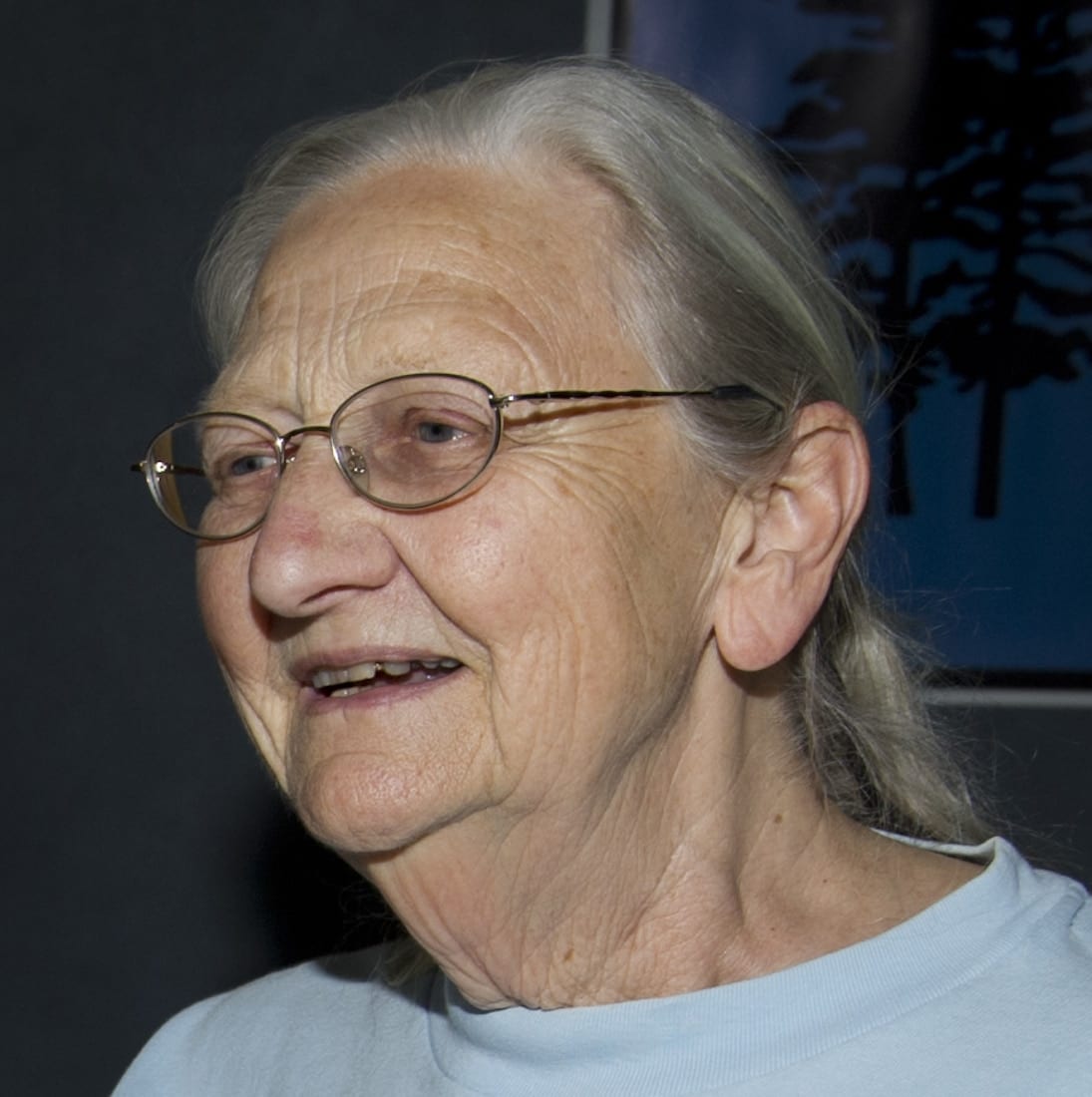Amelie Scheltema
The Woods Hole Oceanographic Institution announces with great sorrow the death of Dr. Amelie Scheltema, Institution Visiting Scholar in the Biology Department, on June 11. She was 87.
“Amelie Scheltema was an example and witness to any who met her that goodness matters and makes a difference, that violence and revenge are never virtues; that social repair, justice tempered with loving mercy, and sacrifice when called for are essential traits to effect change in a difficult world,” said Eric Edwards of Falmouth, who attended Quaker meeting with her. “She exemplified the Quaker experience of living into the grace and intelligence that one is given and that allowed her to become a gentle, kind person.”
“She left a huge impression on a lot of people,” her son Konrad Scheltema said. “She was always the first to welcome a new person at a Quaker meeting and she would and did connect with anyone.”
Born in Boston, her father was a Navy officer, and her family traveled and moved frequently. They settled in Old Lyme, Connecticut, where she spent most of her childhood. She attended Bryn Mawr College and graduated in 1949 with a degree in geology. She worked for the US Geological Survey in Washington, DC, after her graduation.
She met Rudolf S. Scheltema at Harvard University, where both were doing graduate work. They married in 1955. While her husband pursued his PhD at the University of North Carolina, she worked for the UNC Press.
They spent four summers in Woods Hole before moving there permanently in 1960 when Rudolf Scheltema started his career at WHOI. By then, Amelie Scheltema’s interest had shifted from geology to biology. She worked in her husband’s lab and in 1965, she received a grant from Radcliffe Institute to study solenogastres, a special group of deep sea mollusks.
In 1992, at the age of 64, she received her PhD from the University of Oslo in recognition of her more than 30 years of research in marine biology. She became a marine biologist and a visiting scholar in the biology department at WHOI, studying Aplacophorans, mollusks that she had first seen in the 1960s while working with her husband and fellow scientist Howard Sanders at WHOI.
Pamela Neubert, who was a postdoctoral fellow at WHOI with Dr. Scheltema, said “Ami served as a role model for women in science. She struggled to be recognized as a researcher during a time when women often found themselves overlooked and in the background. She acquired her PhD in 1992 at an age when most people might consider retiring.”
Up until her death, she was still actively pursuing her research and was midway through writing another scientific article.
Dr. Scheltema was very active in the community. Her letters to the editor of the Enterprise over the years reflected her range of interests and concerns, from restorative justice to diversion toilets to ending the war in Afghanistan.
She had become a member of the Religious Society of Friends (Quakers) in the 1960s.
“Amelie became a powerful voice for Quaker ideals, at one time or another assuming all of the task-oriented jobs necessary to maintain the Quakers of SE New England,” said Alta Mae Stevens of Falmouth, a friend and college classmate. “It was thanks to Amelie’s deep faith in pacifism as practiced by the Quakers, that she managed during the atomic bomb scare to get all of Woods Hole declared a nuclear-free zone.”
Mr. Edwards noted that she was clerk of West Falmouth meeting, clerk of Sandwich monthly meeting, clerk of Sandwich quarterly meeting, and a member of New England yearly meeting’s committee for peace and social concerns. She was a meeting representative to the Friends Committee on National Legislation in Washington, DC.
Before becoming a member of the Religious Society of Friends, she helped to found Falmouth’s Unitarian Universalist Fellowship (at the time meeting in the West Falmouth Quaker meeting house). Mr. Edwards said she was always involved with Quakers as they kept up the Friends’ historical relationship with the Mashpee Wampanoag tribe.
Her son remembers that in the 1980s “she became involved in Alternatives to Violence, conflict resolution for maximum security prisoners. She worked at a prison, and the prisoners called her ‘Mom.’ What really impressed me is that they invited me to their Christmas party, not because they knew anything about me but because of who my mother was.”
Dr. Scheltema was a longtime member of Falmouth’s Affirmative Action Committee, was active many years ago in the promotion of non-violence in Falmouth schools, the Sanctuary Project, and, with her husband and Mr. Edwards, was responsible for creating the area’s counter-recruitment and draft counseling center. In the 1990s until the project closed, she worked with illegal immigrants at the Boston INS center.
At the time of her death she was involved with the restorative justice project on Cape Cod.
“Mom was always true to herself. She had no patience with class,” said her son Konrad. “In 1994, she was out at sea on the Discovery, a British ship, in the Arabian Sea. It was hot, and the scientists headed off to the officers’ lounge. My mom was suffocating in the heat and in the upper class atmosphere of the officers’ lounge. She left the lounge and was last seen dancing with the crew, demolishing naval tradition.”
In addition to her husband, she leaves two sons, Charles T. Scheltema of Falmouth, and Konrad E. Scheltema and his wife, Nicole M. Petrin, of Guilford, Vermont; three grandsons, Evan S., Oliver A. and Teodoor L. Scheltema. In addition, she leaves a foster daughter, Zada Clarke of Martha’s Vineyard.
Information for this obituary is from Debbie Scanlon/Falmouth Enterprise.

